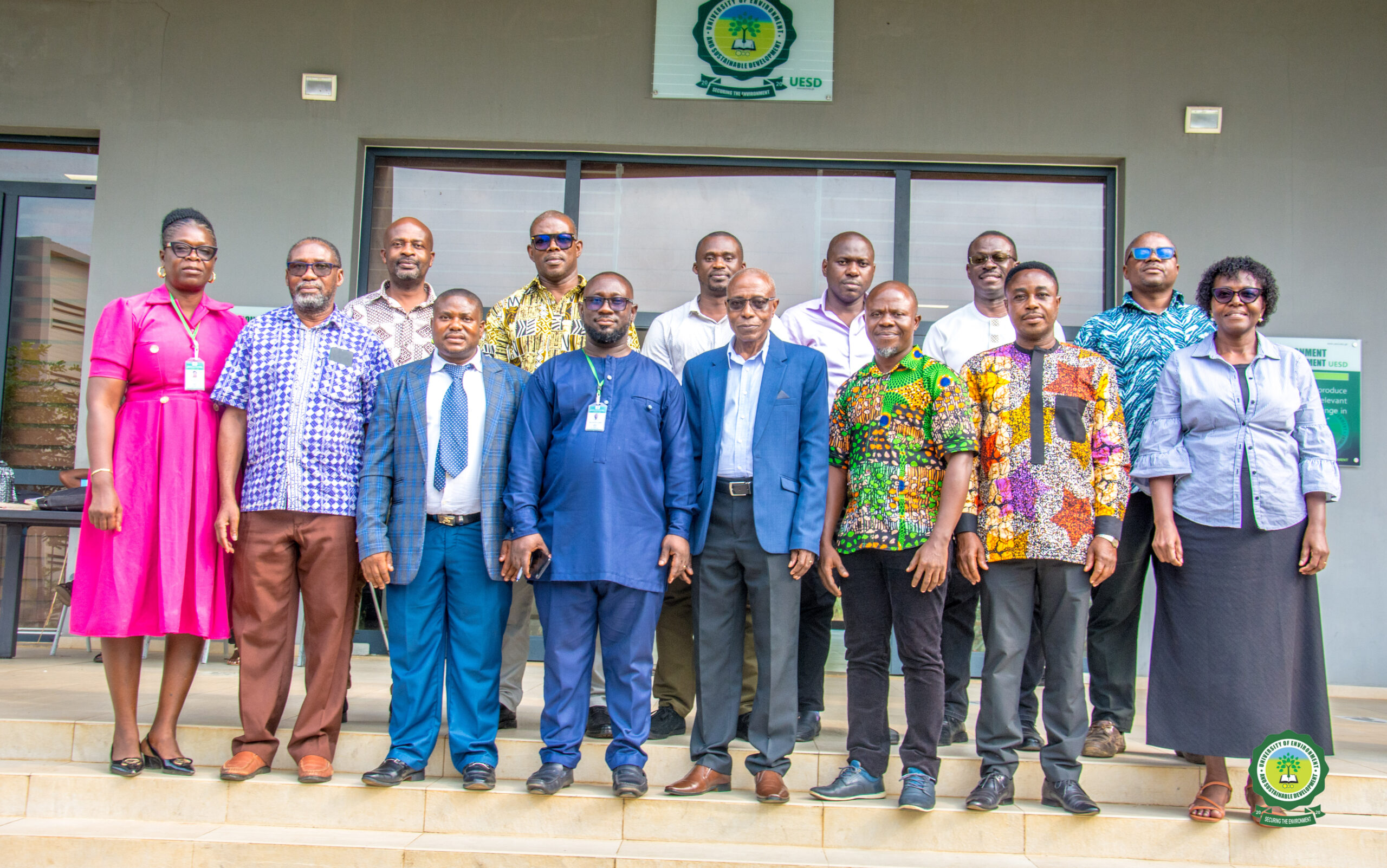The University of Environment and Sustainable Development (UESD), Somanya, Eastern Region has hosted a curriculum review workshop to assess the proposed MSc/MPhil in Chemical Sciences programme. The workshop brought together a team of seasoned academics and experts from various subfields of chemistry to evaluate the programme’s structure and ensure its alignment with national and international standards.
In the first session, Prof. James Titah, a Carnegie African Diaspora Fellow (CADFP Fellow), presented an overview of the draft programme document and outlined the objectives of the Master’s programme. His presentation provided a foundation for critical discussions, during which experts shared their perspectives, made contributions, and offered recommendations, particularly on graduation requirements. This was followed by a presentation from Prof. Alex Nii Moi Pappoe, Chairman of the UESD Postgraduate School Committee (PGSC), who addressed the alignment of the draft curriculum with the regulatory requirements for postgraduate studies in Ghana.
The second session featured a panel review moderated by Dr. Kodwo Dadzie Ninsin, Senior Lecturer, Department of Physical and Mathematical Sciences, UESD, which was reviewed by subject-matter experts from various branches of chemistry. Prof. Dorcas Osei-Safo of the University of Ghana, Legon led the review of the Biological and Organic Chemistry concentrations. She recommended a clear distinction between core and elective courses and encouraged a system that allows students to select electives based on credit requirements. Although the seminar course carries zero credit, she stressed that it should still be graded to ensure student commitment. She also advised that the Biological Chemistry I course should clearly state a maximum of five objectives, and recommended listing between five and seven reference textbooks, properly formatted in APA style as per GTEC guidelines. Additionally, she proposed a blended mode of delivery, both in-person and online. In the area of Organic Chemistry, she advocated the inclusion of new courses such as Organic Synthesis and Advanced Organic Chemistry.
In the Physical Chemistry review, Dr. Albert Aniagyei of the University of Health and Allied Sciences proposed replacing Advanced Thermodynamics with Statistical Thermodynamics. He also recommended introducing Molecular Symmetry and Advanced Group Theory into the curriculum to enhance the programme’s depth. Dr. Andrew Affum, of the Ghana Atomic Energy, who led the review for Analytical and Environmental Chemistry, suggested the inclusion of courses on Remediation and Water Chemistry. He emphasized the importance of these areas, especially in view of Ghana’s current environmental challenges and UESD’s core mandate. For Inorganic Chemistry and Materials Science, Prof. Collins Obuah of the University of Ghana, Legon stressed the need to improve overall course content, though he noted that the existing modules on Solid State and Materials Chemistry were satisfactory.
In his remarks, the chairman of the workshop, Prof. James Darkwah, a visiting scholar at the Department of Chemical Sciences, University of Johannesburg, South Africa, emphasised that the final curriculum should reflect UESD’s core mandate. He highlighted the environmental and analytical components as central pillars of the programme, pointing out that they are critical for developing practical and commercially viable solutions to address both national and global challenges.
By: Frederick Brookman

